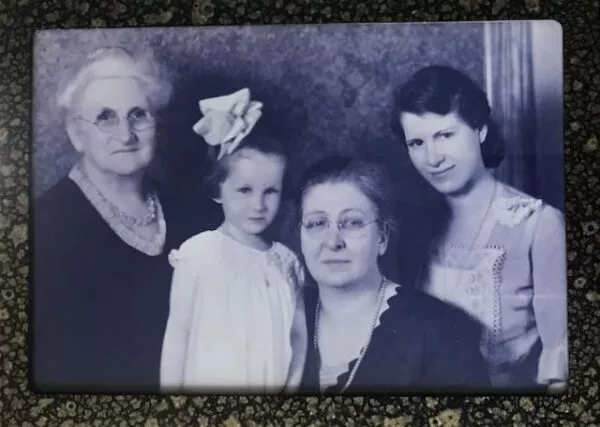Antiquities traffickers have now upgraded from the old practice of creating fake “Swiss Private Collection” provenances to selling their stolen loot through reputable auction houses who turn a blind eye or even create entire fake auction houses. It’s a one-stop shop that covers the entire operation from ground robbery to international sales and exports.
The Carabinieri Preservation Corps (TPC) in Bari, southern Italy, uncovered an elaborate theft and fencing operation that went far beyond a small-scale, piecemeal game of hot potato between looters, brokers, smugglers and drug dealers. Arrest warrants have been issued for four people in Puglia and Lazio for criminal links related to the reception and illegal export of archaeological finds, but 32 people are still under investigation and this is just the tip of the iceberg.
The order stems from an extensive and complex investigation, commonly known as “Art Commons,” which was conducted by the Barrie TPC Core in 2020 Launched in 2006, it ultimately dismantled a criminal association dedicated to clandestine excavations, run by tomb-robbers and thieves, to illegally appropriate and steal cultural assets belonging to the unavailable heritage of the state, thereby receiving through stable illegal supply channels and unified channels Logistics networks designed to conceal stolen goods, establish value, prepare accompanying documentation to establish the apparent legitimate origin of the goods, and and transportation by appropriate means (specially prepared vehicles and professional couriers) and strategic communications aimed at evading possible investigations (telematic channels instead of telephone, use of cryptic language and false personal identities), in addition to subsequent illegal departure from Italian territory In addition to departures and exports, you can also count on stable purchases of goods by entities involved in various activities, including foreigners. Chain for receiving stolen goods. In particular, the entire illegal trafficking of archaeological finds is managed through a ghost auction house called “COSTA’S GALLERY”, located in Antwerp (Belgium), which is attributed to two subjects affected by the precautionary measures The house mainly sells Apulian and Etruscan objects, illegally stolen from archaeological areas in central and southern Italy and shipped to galleries and auction houses in Europe and the United States.
The operation not only sells its looted items on international markets; It also has bases in Belgium, Spain and throughout Italy. Even the small but powerful Republic of San Marino has been caught in its web. The investigation must therefore also be wide-ranging and involve cooperation with law enforcement authorities in Belgium, Germany, Spain, Austria and Switzerland.
During the investigation, overseas searches were carried out in Granada, Valencia, Brussels and Lugano, in cooperation with the Spanish National Guard, the Belgian Federal Police and the Swiss Federal Police, resulting in the seizure of items purchased from the National Guard. Important archaeological discoveries. non-existent” auction house, using a shipping logistics network created for illegal purposes to send precious antiquities. The items recovered (approximately three hundred items) include decorated ceramic vases (in particular two Hydria with red patterns, three Kylix with black glaze , two red-patterned Lekanis, an Oinochòe with a three-leaf mouth), more than 200 silver and copper coins of various periods, many minted by ancient Puglia mints (some still affected by mud crusts), bronze rings and pendants, various metal detectors and excavation equipment, false attestations of provenance and use for Computer equipment for negotiations and commercial transactions. Among them, an exceptional marble sarcophagus found in Belgium dating to the time of the Roman Empire and fifteen Etruscan sculptures found in Spain stand out, as well as others dating to 5 BC. Ceramics of Italian origin to the 3rd century.
Four years on, the investigation is far from over and the judicial process is still in its preliminary stages. The intricacies of this criminal organization would take years to unravel.


 Anal Beads
Anal Beads Anal Vibrators
Anal Vibrators Butt Plugs
Butt Plugs Prostate Massagers
Prostate Massagers
 Alien Dildos
Alien Dildos Realistic Dildos
Realistic Dildos
 Kegel Exercisers & Balls
Kegel Exercisers & Balls Classic Vibrating Eggs
Classic Vibrating Eggs Remote Vibrating Eggs
Remote Vibrating Eggs Vibrating Bullets
Vibrating Bullets
 Bullet Vibrators
Bullet Vibrators Classic Vibrators
Classic Vibrators Clitoral Vibrators
Clitoral Vibrators G-Spot Vibrators
G-Spot Vibrators Massage Wand Vibrators
Massage Wand Vibrators Rabbit Vibrators
Rabbit Vibrators Remote Vibrators
Remote Vibrators
 Pocket Stroker & Pussy Masturbators
Pocket Stroker & Pussy Masturbators Vibrating Masturbators
Vibrating Masturbators
 Cock Rings
Cock Rings Penis Pumps
Penis Pumps
 Wearable Vibrators
Wearable Vibrators Blindfolds, Masks & Gags
Blindfolds, Masks & Gags Bondage Kits
Bondage Kits Bondage Wear & Fetish Clothing
Bondage Wear & Fetish Clothing Restraints & Handcuffs
Restraints & Handcuffs Sex Swings
Sex Swings Ticklers, Paddles & Whips
Ticklers, Paddles & Whips
















